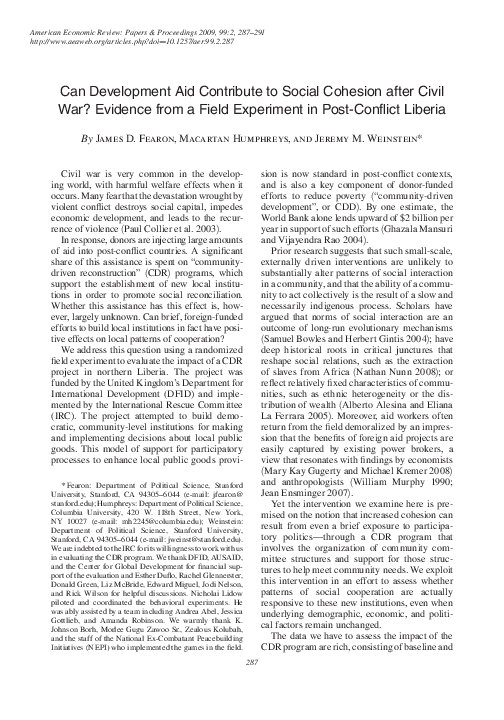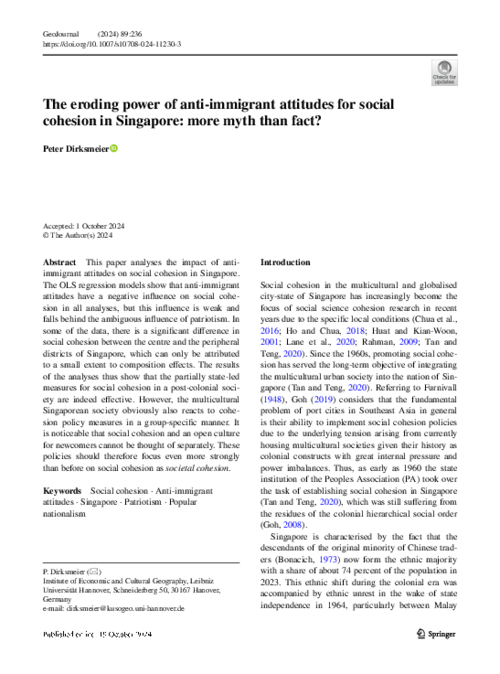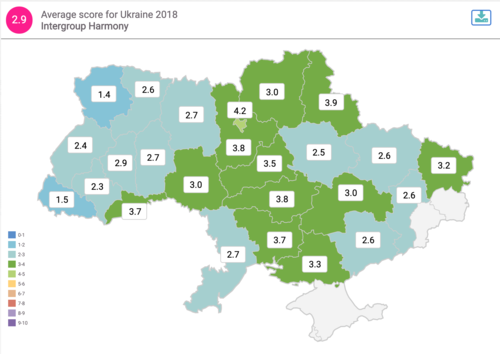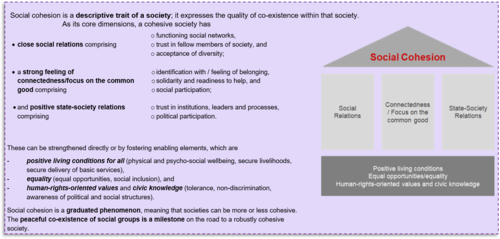Can development aid contribute to social cohesion after civil war? Evidence from a field experiment in post-conflict Liberia
Key facts
Orientation towards the common good
Cooperation
Development cooperation
Summary
Civil war is very common in the developing world, with harmful welfare effects when it occurs. Many fear that the devastation wrought by violent conflict destroys social capital, impedes economic development, and leads to the recurrence of violence (Paul Collier et al. 2003). In response, donors are injecting large amounts of aid into post-conflict countries. A significant share of this assistance is spent on “communitydriven reconstruction” (CDR) programs, which support the establishment of new local institutions in order to promote social reconciliation. Whether this assistance has this effect is, however, largely unknown. Can brief, foreign-funded efforts to build local institutions in fact have positive effects on local patterns of cooperation? We address this question using a randomized field experiment to evaluate the impact of a CDR project in northern Liberia.

Explore the hub further




